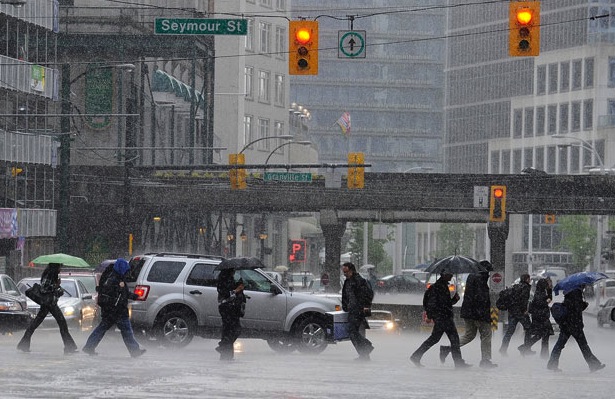
Weekly geopolitical events
By Keating Smith, Staff Writer
North America: (Canada) Colonel Chris Hadfield became the first Canadian astronaut to take command of the International Space Station (ISS) last week. Both Queen Elizabeth II and Prime Minister Stephen Harper have been vocal about recognizing Hadfield’s efforts in his latest mission. Hadfield has been active on social media, posting pictures of Canada as seen from the ISS and tweeting, with his followers growing to half a million on his Twitter account earlier this week. Hadfield is expected to return to Earth sometime in mid-May.
Latin & South America: (Falkland Islands) Citizens in the Falkland Islands voted 98.8 per cent in favour to remain a part of Great Britain as an overseas territory in a two-day referendum held last week. Tension between Great Britain and Argentina has risen over the future ownership of the South American islands during the past several months. The Argentine government declares sovereignty over the oil-rich archipelago and requested that British Prime Minister David Cameron turn over the islands earlier this year.
Asia- Pacific: (Fiji) Disturbing footage of two Fijian citizens being tortured and beaten by military officials in the small Pacific country surfaced on the Internet last week, prompting the UNCHR to demand the Fijian military launch an investigation. Fiji’s Prime Minister Voreqe Bainimarama has contested the clip’s validity claiming the victims likely staged the video to falsely portray abuses authorities in the nation carry out on its citizens.
Asia- Central & South: (Vietnam) A deal with the Russian Defense Ministry for the Vietnamese Navy to acquire a fleet of Russian-built subs was negotiated earlier this month after Russian defense minister Sergei Shoigu made a visit to Hanoi to discuss options. During the Soviet era, the country had a foreign maritime base in the southern city of Cam Rahn until it was decommissioned in 2002. A tentative deal to reinstate the city as a foreign port for Russia is speculated to also be part of the deal, but was not officially confirmed.
Europe: (Slovenia) Last week, thousands of Slovenians gathered in the nation’s capital of Ljubljana to protest the fallen government and its leader Janez Jansa, with many demanding revolutionary changes. Opposition party, Positive Slovenia, ousted Jansa last month in a non-confidence vote, though Jansa’s 20-year career in Slovenian politics has been riddled with scandals and corruption. Protesters stormed the central bank, pasting stickers claiming “This is our property” and a fire bomb was thrown at the building. In February, a crowd of 20,000 rallied against government corruption in one of the largest protests Slovenia has seen since its inception in 1991.
Middle East: (Syria) Last Friday marked the two-year anniversary of the start of Syria’s bloody conflict, which has claimed as many as 70,000 lives and caused over one million Syrians to be displaced. Both France and England were in talks last week to have the European Union lift the arms embargo to rebels in the country. Russia’s foreign minister Sergei Lavrov calling such action a breach of international law. Lavrov has said it is up to Syrians to determine the fate of the Assad regime and that no foreign aid should be allotted into the war-torn country. Lavrov also expressed that Russia has no interest in asking Bashar Al Assad to step down from power. Western countries are becoming critically concerned with the amount of violence spilling into neighbouring countries. Last week, an Al Qaeda-associated group claimed responsibility in the murder of 48 Syrian government troops in Anbar—Iraq’s western-most province.


